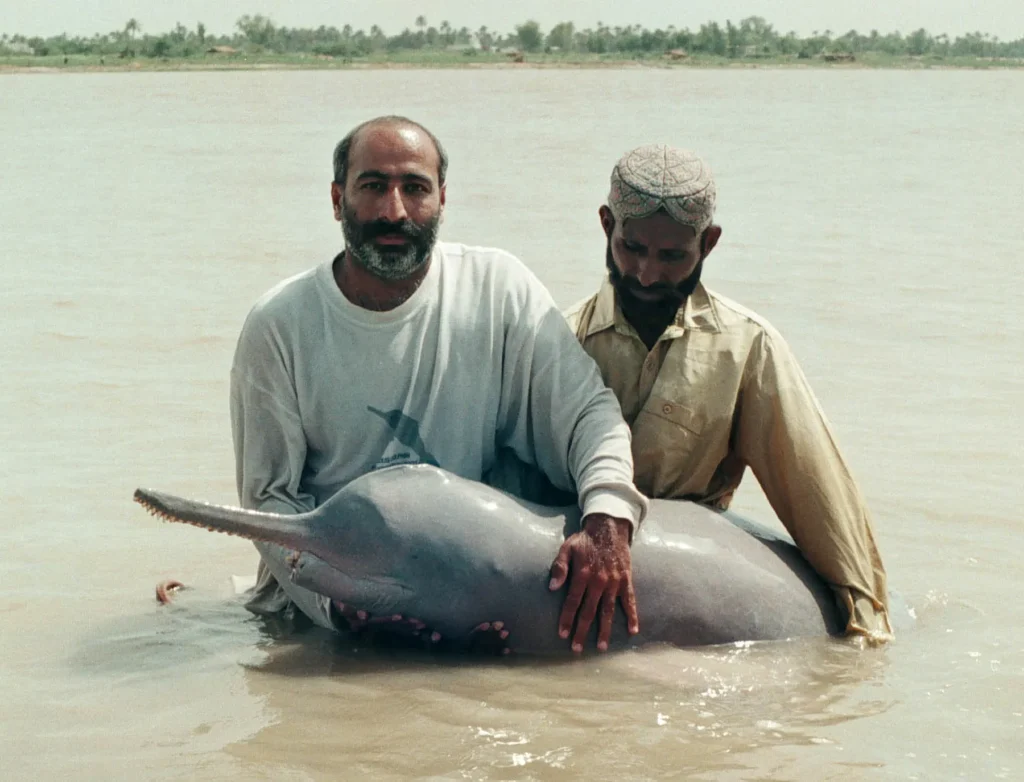PESHAWAR — The Khyber Pakhtunkhwa government has taken a significant step for Indus blind dolphin conservation by approving a Rs50 million annual development plan. This initiative focuses on the riverine area of Dera Ismail Khan, where the rare Indus blind dolphin naturally resides.
The plan includes research, monitoring, awareness campaigns, community involvement, and the proposed creation of a biosphere reserve to support the species’ survival. This article explores the Indus blind dolphin conservation efforts and their importance for preserving this endangered species.
Also Read: Govt Takes Action to Protect Endangered birds in KP
The Khyber Pakhtunkhwa Wildlife Department actively leads the conservation project. The approved plan incorporates research to understand the dolphin’s needs and regular monitoring to track its population. Moreover, awareness campaigns will educate the public about the species. In addition, the initiative involves local communities to foster support and proposes a biosphere reserve to safeguard the dolphin’s habitat in the Indus River.
The government has granted legal protection to this project under Section 30 of the Khyber Pakhtunkhwa Wildlife and Biodiversity (Protection) Act 2015. As a result, the Indus blind dolphin conservation efforts receive robust institutional support and enforcement.
Also Read: Govt Makes Tree Plantation in KP Mandatory Across Public Institutions
In April 2023, the Khyber Pakhtunkhwa Wildlife Department submitted a formal proposal to UNESCO’s Man and Biosphere Programme. This proposal seeks recognition of Dera Ismail Khan’s Indus River stretch as a global biosphere reserve.
Later, on May 30, 2023, experts reviewed the proposal during UNESCO’s National MAB Committee’s seventh meeting in Islamabad. Consequently, it received widespread praise and momentum. This development strengthens the Indus blind dolphin conservation initiative by aiming for international recognition and backing.
Furthermore, the Khyber Pakhtunkhwa government sent official letters to Punjab and Sindh authorities. It urged them to extend the biosphere zone into their respective territories. Therefore, this collaborative approach enhances the dolphin conservation efforts across provincial boundaries.
Also Read: Edge of Extinction: The Tragic Decline of Pakistan’s Common Leopard
Endangered Status of the Indus Blind Dolphin
Known as “Bhulan” in Urdu and Sindhi, the Indus blind dolphin is listed as extremely endangered by the International Union for Conservation of Nature (IUCN). Its population has dwindled to just a few hundred, mainly found in the middle stretch of the Indus River. Consequently, the rarity and vulnerability of this species underscore the urgency of implementing the conservation plan.
The Khyber Pakhtunkhwa government’s Rs50 million plan marks a pivotal moment for dolphin conservation. By prioritizing research, monitoring, community engagement, and proposing a biosphere reserve, the initiative seeks to protect this unique species.
With strong legal backing and potential international support, the Indus blind dolphin conservation effort offers hope for preserving a vital part of Pakistan’s biodiversity.












